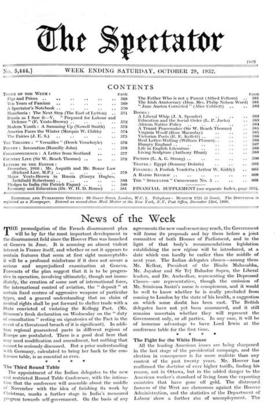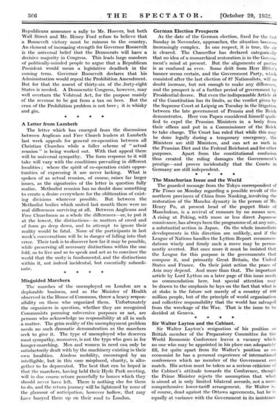The Fight for the White House All the leading American
issues are being sharpened in the last stage of the presidential campaign, and the election in consequence is far more realistic than any contest of the past twenty years. Mr. Hoover has reaffirmed the doctrine of ever higher tariffs, finding his reason, not in Ottawa, but in the added danger to the American worker's standard of living from the exporting countries that have gone off gold. The distressed farmers of the West are clamorous against the Hoover Administration, and the statistics of the Department of Labour' show a further rise of unemployment. The Republicans announce a rally to Mr. Hoover, but both Wall Street and 'Mi. Henry Ford refuse to believe that a Roosevelt victory must be ruinous to the country. An element of increasing strength for Governor Roosevelt is the universal belief that the Democrats will have a decisive majority in Congress. This leads large numbers of politically-minded people to argue that a Republican President would mean a legislative deadlock in the coming term. Govern& Roosevelt declares that his Administration would repeal the Prohibition Amendment. But for that the assent of thirty-six of the .forty-eight States is needed. A Democratic Congress, however, may well overturn the Volstead Act, for the purpose mainly of the revenue to be got from a tax on beer. But the crux of the Prohibition problem is not beer ; it is whisky and gin.













































 Previous page
Previous page